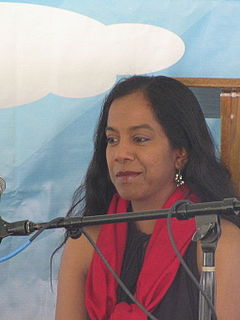Top 11 Quotes & Sayings by Ru Freeman
Explore popular quotes and sayings by a Sri Lankan writer Ru Freeman.
Last updated on November 3, 2024.
I really try to avoid, you know, rolling out the history. The people are so important to me, and what happens to them, how they react, how things happen to them, this is what is important. I feel that if I can tell THAT story well, then people will go and Google the rest and fill in what they need to know.
Diatonic, he heard the word in his head. Chromatic, pentatonic, hexatonic, heptatonic, octatonic, each iteration of the scale opening innumerable possibilities for harmony. He thought about the Pythagorean major third, the Didymus comma, the way the intervals sound out of tune rather than as though they were different notes. This, he thought, was where his brilliance at mathematics bled into his love of music; music was the realm in which his mathematical brain danced.






















